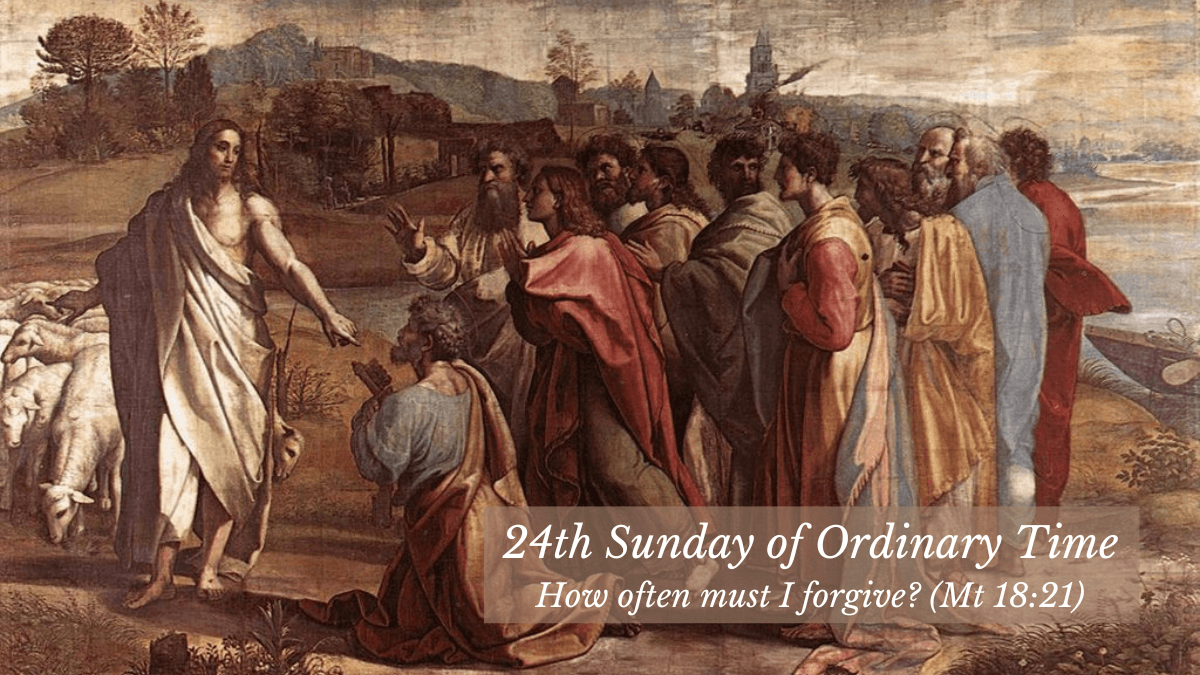On the Back Porch

24th Sunday of Ordinary Time, Year A

What We Celebrate
Peter has just confessed Jesus as Messiah, Son of the living God…and now he has a question: “Lord, if my brother sins against me, how often must I forgive? As many as seven times?” (Mt 18:21) Jesus’ opening response, “I say to you…” echoes the language of the Sermon on the Mount: “not seven times but seventy-seven times.” Some translations have “seventy-times seven. But in any case, this is the language of hyperbole, not of calculation. Those who are concerned as to whether the figure should be 77 or 490 have missed the point. The benchmark is provided by the unimaginable scale of God’s forgiveness of his people illustrated in the parable to follow (vv. 24–27). In other words, there is no limit, and no place for keeping a tally of forgiveness already used up. Peter’s question was misconceived: if one is still counting, however “generously,” one is not forgiving.
There is a lot more to this gospel. Sit with it for a moment on the back porch.
Full Text of the Sunday Readings
Detailed Commentary on the Gospel
Image Credit: Raphael, Handing-over the Keys, 1515, Victoria and Albert Museum, London | Public Domain
Forgiveness
How do you offer forgiveness? I suspect that the most common offer consists of “I forgive you” or “Don’t worry about” “Don’t give it a second thought” or “It’s nothing.” And that all might be true, but sometimes it is only the socially-expected response. It is what we do because we are Christian and we are called to forgive. But, are we really at peace with our response?
When Jesus calls us to be forgiving people, He asks us to tend to a garden in the Kingdom where our lives and relationships flourish, blossom and yield a 100-fold. And like all gardens you have to tend to it daily. It is a habit to be formed, a routine to be lived, and takes practice and patience.
It is a wonderful thing to consider how God tends to His garden, ever showering it with grace and love – and a whole lot of forgiveness. And there is the model of the way we are to tend the garden of our relationships. While we can hold out the image of color, wonder, and harvest as the fruit of our labor – we have to be realistic about the hard, back-breaking work of gardening…and true forgiveness.